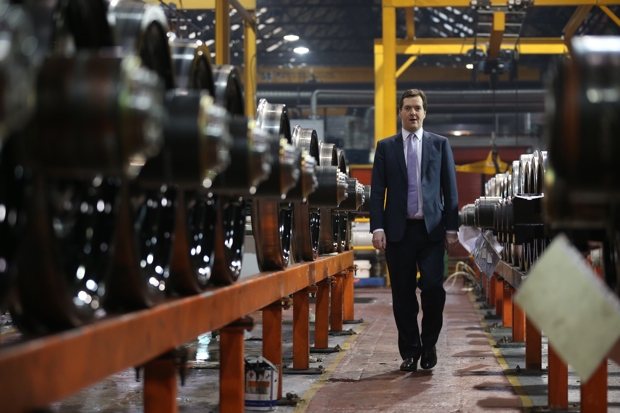At a dinner at the Conservative party conference, in association with Aecom, MPs, local politicians, journalists and policy experts discussed the question: ‘Can the Northern Powerhouse still deliver?’ Guests included Esther McVey MP, Sean Anstee, Leader of Trafford Council, Andy Bounds, North of England correspondent for the Financial Times, and Richard Robinson of Aecom. The event was chaired by Fraser Nelson and the article below is a summary of what was discussed.
The Northern Powerhouse was the brainchild of George Osborne, his intention being to create a better-connected super-conurbation across the North of England with the socio-economic muscle to compete as a global centre. The initiative resulted in the creation of metro mayors, and the location of some internationally important institutions such as Manchester’s National Graphene Institute. But another plank of the policy – a high-speed rail line between Manchester and Leeds has been kicked into the long grass, along with the electrification of the existing Transpennine line.
Moreover, Osborne is out of government and out of politics. Can the Northern Powerhouse survive him?
The paused Transpennine electrification has highlighted the need for a clear strategy, says Richard Robinson. There is too much talking about doing things and not enough doing. The problem can be summed up in a recent Institution of Civil Engineers report, which sets out the course towards creating a plan for the Northern Powerhouse. “We need a plan, not a plan for a plan,” he says.
What we are up against, says Sean Anstee, is centuries of centralisation of political power in Britain. While Manchester is now growing at a faster rate than London, it is never going to come close to rivalling the capital. In global terms, Manchester remains a mid-sized city.
Some in the North resent the attention Manchester, and to a lesser extent, Leeds, are receiving. They want more help for smaller towns and don’t want all the goodies in one place. Cumbria hardly features at all in the Northern Powerhouse. But it is important that the concept is focussed on its original purpose, says Andy Bounds – the idea of linking cities up to create a critical mass. The idea was to create the infrastructure, give northern cities glittering cultural assets and businesses would come and invest. But putting ‘Northern Powerhouse’ on every document about development in the North devalues the brand.
Transport is the number one priority, but there is a conundrum. At present, rail investment is being concentrated in HS2, which will connect Northern cities with London, not northern cities with each other. The name for the proposed Transpennine line – HS3 – have become a problem. ‘It suggests that HS3 can’t happen until HS2 is finished,’ says Robinson.
On housing, there is less opposition to new homes than in the south east. Northern cities are seeing the reversal of decade of depopulation. In the 1960s, says Esther McVey, Liverpool had 700,000 residents. That fell to 220,000 at the lowest point and is now back to 440,000. But there is room for more in the city’s existing footprint. Over in Cheshire, residents are pragmatic about the need for new housing – far from being a dormitory suburb for northern cities, Cheshire has a net inward flow of daily commuters. But the one thing local people are insistent about is the infrastructure: roads, hospitals, schools, must come first.
There is a problem with infrastructure investment – current rules on cost-benefit tend to favour projects in London and the south east. The system needs to be overhauled. Besides rail lines, many roads are substandard. Manchester and Sheffield, two of the largest cities in the country, are still connected by a single carriageway road which tends to close to lorries in high winds. As for funding, the Northern Powerhouse needs to look at infrastructure bonds, which would allow local people and businesses to ‘buy into’ the projects.
Could Northern Powerhouse go the same way as that other Cameron-era project: the Big Society? Esther McVey, whose new constituency of Tatton was until June George Osborne’s, is optimistic it won’t. People grasped the Northern Powerhouse straight away, she says – unlike the Big Society. Even so, there is a challenge ‘that it doesn’t just become a catchphrase’.







Comments